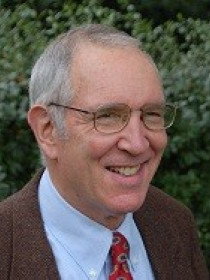
Benjamin I. Page
Connect with Benjamin
About Benjamin
Page works on American politics and U.S. foreign policy, specializing in public opinion, democratic policy making, the media, and economic inequality. He is best known for his work (with Robert Y. Shapiro) on the “rationality” of public opinion: the general stability, coherence, and responsiveness to new information of Americans’ collective policy preferences. He is currently studying the political attitudes and behavior of wealthy Americans – the top 1% of U.S. wealth-holders – investigating how they often disagree with average citizens but tend to get their way in policy making. Page’s past civic involvement has been limited, but he is now committed to helping Americans understand the barriers that stand in the way of democratic responsiveness.